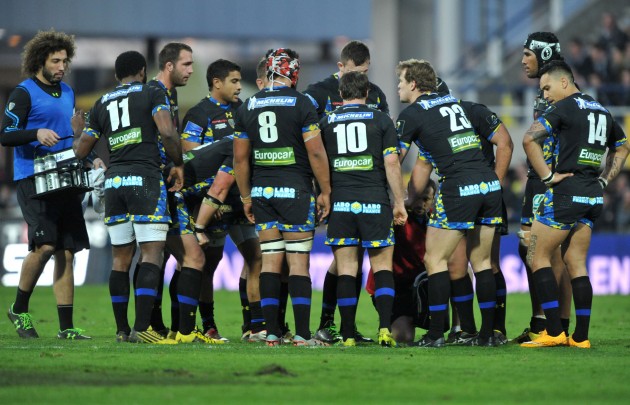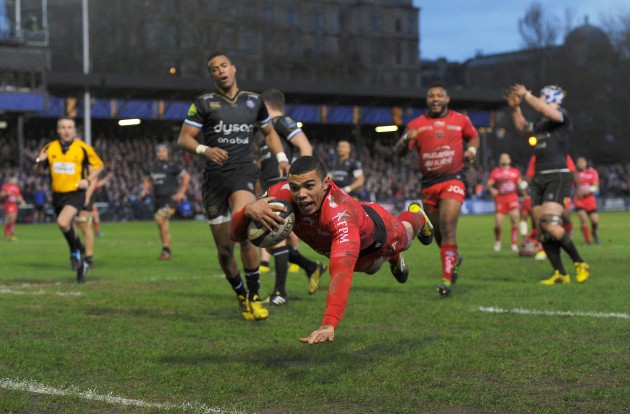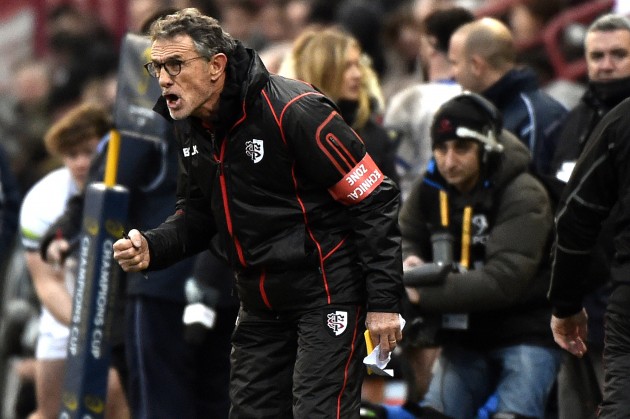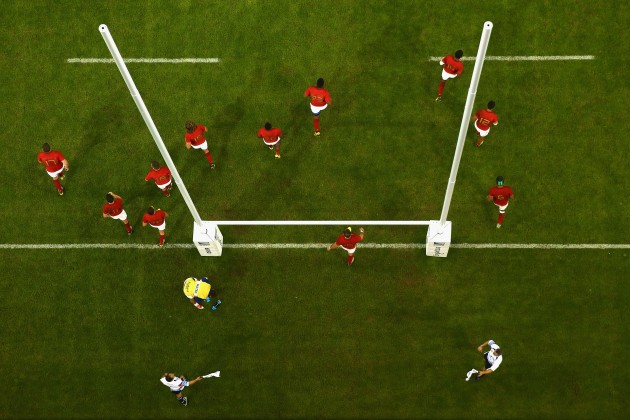With internecine political battles waging in the Top 14 and the Aviva Premiership growing ever stronger, all is not rosy in the French league
If reason was required to explain the insecurity that stalks the professional game in France, one need just look at the standings of the 2009-10 Top 14 table. Perpignan, then the defending champions, finished top of the regular season but were beaten by Clermont in the 2010 final. Biarritz finished seventh but reached the final of the Heineken Cup where they lost to Toulouse.
Six years on and Biarritz and Perpignan are in the ProD2, as are four other clubs from that Top 14 season: Bourgoin, Albi, Bayonne and Montauban. All six over-stretched themselves financially and have paid the consequences.
The English premiership, on the other hand, has remained largely stable in the same period with Exeter taking Leeds’ place in the top flight. But in those six years English club rugby has had no joy in the Champions Cup. Saints and Saracens reached the 2011 and 2014 finals, losing to Leinster and Toulon respectively, the two clubs who have dominated the competition for the past seven years.
This season an English club is guaranteed of reaching the final because of the way the knockout draw has worked out and there’s a strong possibility that the first final to be staged in France for six years won’t feature one of their own clubs.
That would only add to the gloomy atmosphere pervading the French game right now in which a lot of grievances are being aired. Most notably it’s the constant sniping in the media between FFR president Pierre Camou and Bernard Laporte, the man challenging for the most powerful position in French rugby.
The pair have vastly different views of the direction in which the game should be heading and these differences are likely to become more pronounced – and public – in the run-up to December’s FFR presidential election.
Laporte, Toulon’s sporting director, also has little time for Guy Noves, the new France coach, and while the former hasn’t responded to some of the barbs aimed his way, the fact only one Toulon player – captain Guilhem Guirado – is in France’s Six Nations squad is perhaps a more telling riposte.
At club level there has also been plenty of acrimony with Montpellier’s former coach, Fabien Galthie, seeking €1.6m in damages from the Mediterranean club for unfair dismissal while the turmoil at Oyonnax has seen the departure of coach Olivier Azam and star signing Piri Weepu. Then there are presidents of Toulon and Clermont who this month have publicly criticised some of their players.

Legal woes: Former French skipper Fabien Galthie is taking Montpellier to court over unfair dismissal
This negativity has seeped from the backroom onto the pitch. At times the pool stage of the Champions Cup was like witnessing French clubs of old, all snot and aggression, and not all of it legal. Between them, Stan Wright of Oyonnax, Viktor Kolelishvili of Clermont, Bordeaux’s Julien Ledevedec and Josaia Raisuqe of Stade Francais have been banned for 35 weeks. Clermont totalled nine yellow cards in their six pool games, a shocking tally of indiscipline that ultimately cost them a quarter-final place.
It’s symptomatic of the crisis of confidence within the French game. The national team has been in steady decline for years and Guy Noves is the latest coach to be tasked with transforming their fortunes. People talk of a ‘new era’, in much the same way they do in England, but the more discerning French fan knows that Les Bleus’ World Cup failure can only be partly attributed to the coach. The whole structure of the sport in France, from professional level down through to amateur club rugby and youth level, is sclerotic. But France is a conservative nation, one that is wary of change, and there are too many people in power who would rather preserve the status quo than implement the drastic change that is necessary.
In recent years French fans have at least been able to console themselves with the Top 14 and its galaxy of international stars. But that is now losing its lustre, its status as the world’s most glamorous league increasingly under threat from the Aviva Premiership, now that its salary cap has grown giving it more clout in the global transfer market.
Perhaps players considering moving to France have been scared off by the terrorist attacks or, more likely, they’ve understood that life in the Premiership can be just as financially rewarding but less physically exhausting. There’s also the style, far more expansive than the risk-averse rugby that in recent seasons has characterised the Top 14 because of the fear of relegation to ProD2 and the resultant financial implications.
Earlier in the month Midi Olympique bemoaned French rugby’s ‘loss of identity’, a crie de coeur that one could apply to France as a whole. The country has been left behind by the 21st Century, too many influential people suspicious of modernity and fearful of change. It comforts itself with reminders of the past, when it was a proud nation with a confident culture and a strong economy.
Mourad Boudjellal’s announcement last week that he wants Toulon to join the Premiership was more than just the latest act in the club’s soap opera. The Toulon president has his faults but no one can accuse him of lacking business savvy. He’s studied the respective business models of England and France, and concluded that “the economic future is better in England than in France, given how the two leagues are run. The English make good decisions.”
English rugby has a new national coach, a new national captain and a feeling of optimism running through the professional game. France has the coach and captain but not the feel-good factor.








